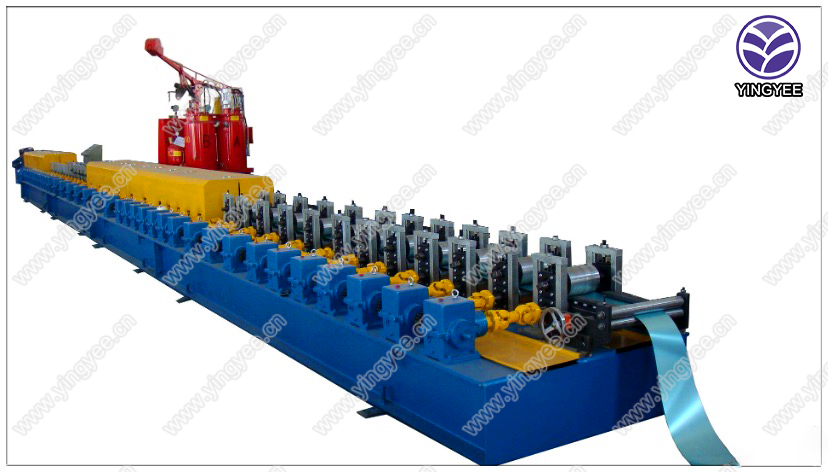
The Production of Mild Steel Pipe Making Machines An Overview
Mild steel pipe making machines play a crucial role in the manufacturing of pipes that are widely used in various industries, including construction, automotive, and manufacturing. These machines are specifically designed to produce pipes from mild steel, a material known for its ductility, weldability, and cost-effectiveness. In this article, we will explore the process of mild steel pipe production, the types of machines involved, their applications, and the benefits they offer.
Understanding Mild Steel
Mild steel, also known as low carbon steel, typically contains approximately 0.05% to 0.25% carbon content. This low level of carbon leads to improved malleability and ductility, making it an ideal choice for pipe manufacturing. Mild steel is not only affordable but also provides excellent strength and durability, which are critical attributes for pipes that must withstand pressure and stress in various applications.
Pipe Making Process
The production of mild steel pipes involves several key processes, including welding, forming, and finishing. The pipe making machine usually starts with flat mild steel coils, which are fed into the machine where they undergo a series of operations
1. Feeding and Uncoiling The flat coils of mild steel are unwound and fed into the forming section of the machine.
2. Forming The steel strip is shaped into a cylindrical form through various methods, such as roll forming or stamping. Roll forming utilizes a series of rollers that gradually bend the steel strip into the desired shape.
3. Welding After the steel is formed into a cylindrical shape, the edges are joined together through welding. The most common methods of welding used in pipe production include high-frequency induction welding (HFIW) and submerged arc welding (SAW). HFIW is renowned for its efficiency and strong weld quality, making it a preferred choice for manufacturing mild steel pipes.
4. Sizing Once welded, the pipe must be sized to ensure uniformity. This involves trimming the edges and passing the pipe through a sizing mill to achieve the desired dimensions.
5. Finishing Finally, the pipes undergo finishing processes, which may include cutting, straightening, and surface treatment to enhance their durability and aesthetic appeal.
Types of Mild Steel Pipe Making Machines
Various machines are employed in the production of mild steel pipes, each designed to handle specific aspects of the process. Some of the most important types include
- Slitting Machine This machine cuts the steel coil into narrower strips, which can later be shaped into pipes.

- Pipe Rolling Machine It forms the steel strips into pipes by rolling them through a series of rollers
.- Welding Machine Essential for joining the edges of the formed pipes, specialized welding machines ensure the quality and strength of the final product.
- Sizing Mill Used to achieve precise pipe dimensions, the sizing mill ensures that the pipes meet industry standards.
- Finishing Machine This equipment polishes and coats the pipes, enhancing their resistance to rust and corrosion.
Applications of Mild Steel Pipes
Mild steel pipes have a wide range of applications across various sectors. In construction, they are used for structural purposes, such as beams and columns. In the oil and gas industry, mild steel pipes are commonly utilized for transporting crude oil and natural gas due to their strength and flexibility. Additionally, they are used in the manufacturing of water supply and drainage systems, automotive exhaust systems, and as conduits for electrical wiring.
Benefits of Using Mild Steel Pipe Making Machines
The use of advanced mild steel pipe making machines brings numerous advantages
1. Efficiency Modern machines are designed to produce pipes at high speeds, significantly reducing production time.
2. Consistency Automated processes ensure that the quality and dimensions of the pipes remain uniform across the production batch.
3. Cost-Effectiveness The use of mild steel as a raw material and the automation of production processes lead to lower overall manufacturing costs.
4. Versatility Mild steel pipes can be produced in various sizes and thicknesses, making them suitable for diverse applications.
In conclusion, mild steel pipe making machines are vital to the manufacturing sector, enabling the production of high-quality pipes essential for numerous applications. With ongoing innovations and advancements in technology, these machines continue to enhance efficiency, reduce costs, and meet the growing demands of various industries around the world.